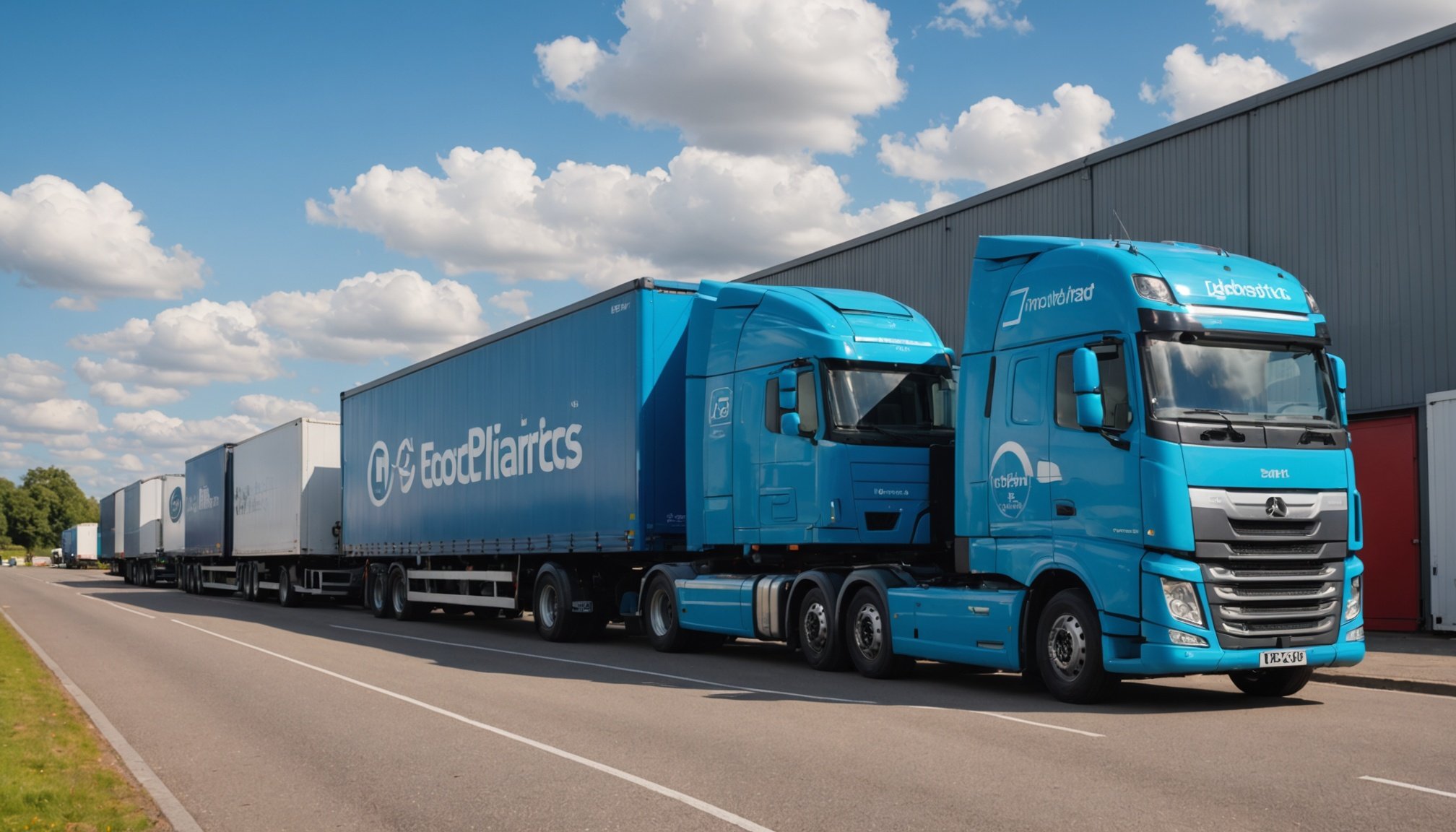Overview of AI in Predictive Analytics within the UK Logistics Industry
In recent years, the UK logistics industry has seen profound transformation through the adoption of AI in logistics. Predictive analytics, a pivotal component of this change, refers to the use of data-driven algorithms and machine learning to forecast future outcomes based on historical data. It holds immense significance in the logistics sector by optimising routes, reducing delivery times, and improving customer satisfaction. These insights enable companies to anticipate demand spikes, streamline inventory management, and cut costs.
Current trends showcase a growing reliance on AI tools within the UK logistics industry. Companies are increasingly deploying AI-driven predictive analytics to enhance decision-making processes, driving a shift from reactive to proactive logistics management. This trend is fueled by advancements in machine learning algorithms and the abundance of big data, leading to more informed strategic planning.
Also to see : Revolutionizing drug discovery: how quantum computing is shaping the future of medicine in the uk
The potential impact of predictive analytics on operational efficiency cannot be overstated. It enables logistics firms to simulate supply chain scenarios, identify bottlenecks, and enhance delivery accuracy. By embracing AI in logistics, the UK logistics industry stands to gain by reducing operational costs, improving supply chain resilience, and ultimately delivering better service to clients. This transformative journey is set to redefine logistics across the UK.
Case Studies Demonstrating AI-Driven Predictive Analytics
In the realm of AI, case studies reveal compelling success stories in various sectors. By analyzing real-world examples, businesses can understand the transformative impact of AI. Particularly, companies in the UK logistics sector have adopted AI-driven predictive analytics to revolutionize operations.
Also read : Enhancing university excellence: the role of ai in revolutionizing academic achievement in the uk
Major Retailers Leveraging Predictive Analytics
Prominent UK retailers have utilized predictive analytics to enhance inventory management and boost customer satisfaction. One leading retailer implemented an AI system that predicted purchasing trends, reducing stock shortages by 30%. Consequently, customer satisfaction improved significantly, with 85% of sales associates reporting shorter wait times for product restocking. This case study exemplifies how leveraging AI not only optimizes operations but also enhances the customer experience.
Freight and Transport Companies Utilizing AI
AI adoption is transforming UK freight companies by improving delivery times and optimizing routes. A top freight company reported a 25% reduction in fuel costs and a 40% improvement in on-time deliveries through advanced route planning algorithms. These case studies signify the substantial benefits of AI in enhancing logistical efficiency.
Warehouse Management Innovations
AI has ignited innovations within UK warehouse management. By incorporating machine learning, warehouses have achieved a 20% increase in efficiency and a 15% reduction in operational costs. These real-world examples underscore the potential for AI to streamline warehousing processes and cut expenses.
Benefits of Implementing AI in Predictive Analytics
Integrating AI into predictive analytics brings numerous advantages. One prominent benefit is the enhancement of decision-making through insights derived from data. By analyzing vast amounts of information quickly, businesses gain a clearer view of future trends and make strategic choices grounded in evidence. This process propels companies ahead in competitive markets by identifying potential opportunities and risks more accurately.
Moreover, AI leads to significant reduction in operational costs. Automating processes enables companies to operate more efficiently, decreasing the need for manual intervention and reducing resource usage. Predictive models forecast demand and identify inefficiencies, ensuring optimal resource allocation and logistics management. Consequently, organizations experience enhanced productivity and profitability.
Importantly, AI enhances the customer experience. Predictive analytics allow businesses to anticipate customer needs and tailor services accordingly. Utilizing predictive capabilities, companies can personalize interactions and offer more relevant product recommendations, leading to increased customer satisfaction and loyalty.
In essence, the application of AI in predictive analytics transforms how businesses operate. By hunting for insights in data, optimizing logistics, and executing cost-effective strategies, organizations harness the true potential of AI, creating a sustainable advantage in today’s fast-paced world.
Steps for Implementing AI in Predictive Analytics
Integrating AI into predictive analytics can revolutionise logistics by providing more accurate forecasts and actionable insights. Implementation strategies should be carefully planned to maximise effectiveness and efficiency.
Assessing Current Capabilities and Needs
Understanding your organisation’s existing infrastructure is key. Before embarking on AI integration, evaluate what systems are currently in place and identify any gaps that may hinder AI adoption. Recognising where improvements are needed helps set a clear path for implementation, allowing for a more seamless transition.
Choosing the Right AI Tools and Technologies
Selecting the right tools is vital. Numerous AI tools are popular in predictive analytics, each with unique features tailored to specific needs. Consider tools that align well with your logistics requirements. Tips for selecting the right tools include assessing your data volume, accuracy needs, and budget constraints. This alignment ensures the technology you choose enhances your operational flow effectively.
Training and Developing Staff Competencies
Successful AI implementation heavily relies on the workforce’s ability to use new technologies. Training is not just vital; it is a cornerstone of the implementation process. Encourage and support your team to embrace AI by offering structured training programs. Developing an AI-ready workforce can help your organisation fully leverage AI’s potential in predictive analytics.
Expert Opinions and Statistics on AI in UK Logistics
In the landscape of UK logistics, expert insights reveal profound transformations driven by AI. A notable statistic indicates that AI has augmented logistical efficiency by over 30%, streamlining operations and reducing costs. Such statistics underscore the vital role of technology in reshaping the industry.
Industry experts predict that AI’s presence will deepen, highlighting the transition to automated processes as a pivotal trend. According to one such insight, the integration of AI in logistics will foster capabilities like real-time tracking and predictive analysis, making operations faster and more reliable.
Yet, the path to widespread AI transformation isn’t without obstacles. Challenges such as technological integration and resistance to change pose hindrances. However, adopting a phased approach and investing in training can mitigate these issues. Encouraging an innovative mindset within organisations is essential for successful AI adoption.
AI transformation in logistics isn’t just a promising trend; it’s a strategic necessity for staying competitive. By harnessing expert insights and addressing challenges, the industry can leverage AI to its full potential. Statistics and industry analysis reveal that those embracing this change will undoubtedly lead the sector into a more efficient and dynamic future.






